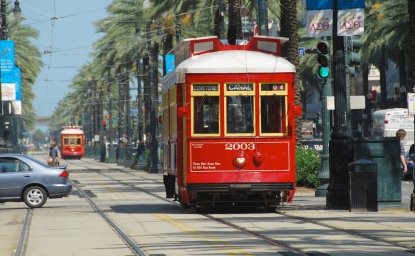
The master dramatist Nikolai Kolyada has made himself the center of gravity around which much of the new drama world revolves in Yekaterinburg, Russia, a city of 1.4 million residents just beyond the Urals tucked inside the edge of Asia. Born in 1957 in the bleak and remote provincial settlement of Presnogor’kovka in the Kustanay Region, Kolyada trundled off to the theater school in Sverdlovsk -- as Yekaterinburg was known for much of the Soviet period -- at a young age. Graduating at twenty, he began a career on stage with the Sverdlovsk Academic Theatre of Drama. As an aspiring actor, he played the sorts of wide-ranging, ever-more-prominent roles that are typical of the Russian repertoire. But Kolyada was drawn to writing, so he enrolled in the prestigious Gorky Literary Institute in Moscow. This move brought him to the Soviet capital at the height of the excitement and ferment prompted by Mikhail Gorbachev’s glasnost’ (openness) and perestroika (restructuring) policies.
The Soviet-era Sverdlovsk he left behind earned a reputation as one of the most criminally violent in the entire Soviet Union. Indeed, the same factors that enriched its economic and cultural life made it a natural center for vice. The city was sufficiently far from Moscow to be beyond its direct control yet close enough to remain within reach, and close enough to the Siberian prisons to become a magnet for newly released prisoners. It stood astride major transportation routes connecting narcotics-growing fields to the south and east and drug markets to the west, with a vast population of factory workers and their families who were beginning to feel the first indications of a national economic collapse that would shut down their factories. Everything about the city promoted the emergence of vast, disciplined, aggressive, and malevolent bands of armed criminals, hangers-on, and wannabes.
As the Soviet industrial economy collapsed in the late 1980s and early 1990s, criminal cartels—known in Russia as “mafiyas”— moved in to lay claim to the region’s vast mineral wealth; to seize and dismantle the enormous factories that could only be used as scrap; to sell off light and heavy weaponry from military bases that were no longer under any form of discernible control; to traffic in desperate human beings trying to find some way to survive; to push drugs and launder their profits; and to extort whenever possible.
These gangs entered into turf battles following the collapse of the Soviet Union, unleashing a brutal and massive gang war. Explosions, shootings, and murders became a daily occurrence from 1992 until 1994, with Yekaterinburg earning a reputation as the most criminal-plagued city in Russia. With turf divided up by late 1994, criminal cartels allegedly expanded their horizons, reputedly laying claim to various local, regional, and national political positions.
Post-Soviet Russia’s criminal gangs in Yekaterinburg and elsewhere thrived by drawing new recruits from those who felt they had lost out during the collapse of the Soviet Union. By the late 1990s, Russia had no shortage of those who had been slapped in the face, pushed into the gutter, and abandoned during the post-Soviet collapse—and no shortage of writers and artists trying to give form and meaning to their travails. Which brings us back to Kolyada.
Once in Moscow, Kolyada became a cause célèbre after penning Slingshot (1986), a play that offered a sympathetic view of a gay relationship. While shocking Moscow, Kolyada found an enthusiastic reception in California where the play was performed at the San Diego Repertory Theater. He became an international sensation for the first time. After graduating from the Gorky Institute in 1989, he returned to Sverdlovsk and, since 1994, has taught at the Yekaterinburg Theatrical Institute, offering one of the few playwriting and dramaturge curricula in Russia.
Once back in the Urals, Kolyada began to write plays (more than one hundred, of which more than half have been performed in Russia and abroad), to teach others to write and act (his students include some of Russia’s most exciting young playwrights), to direct and produce plays, to organize theater festivals (e.g., the Eurasian Drama Competition Festival, which began in 2003, as well as the Kolyada-Plays Festival, which began in 2006), and to serve as an intellectual leader in the Urals region (as confirmed by his decade-long editorship of the intellectual journal Ural). These activities nurtured and sustained a thriving theater community in this Soviet rust-belt leviathan.
In December 2001, Kolyada founded his own company, the Kolyada Theatre, which initially performed at Pushkin House in a historic Yekaterinburg neighborhood. Though operating with almost no state funding, Kolyada kept his company together at times by asking its members to bring in any items that they no longer needed at home, and by drawing on the considerable international interest in his work to secure support for his actors and protégés.
Kolyada attracted controversy yet again. Unlike many among the Russian intelligentsia, he publicly and enthusiastically embraced the 2012 candidacy of Prime Minister Vladimir Putin for a return term as Russian president. The move brought Kolyada a wave of outrage and approbation from many former supporters, combined with charges that he had sold out to those in power in order to secure a new theater.
While Kolyada thrived, many observers were arguing that Russian theater was just one more victim of the post-Soviet transition. But just as some were sounding the death knell for the Russian stage, a New Russian Drama Movement coalesced around talented writers and directors who were liberated by the end of censorship that accompanied the collapse of communism; actors who were increasingly exposed to a rich tapestry of competing styles now unencumbered by the legacy of the Soviet stage’s ossified psychological realism; and audience members who were trying to find their own lives amid the wreckage of post-Soviet culture being overrun by the most degraded and least creative artifacts of increasingly globalized pop culture.
As important as Kolyada has been for the theatrical and cultural scene in Yekaterinburg, his ambitions extend far beyond its boundaries. He has sought to free Russian theater from its traditional fixation on director-producers (rezhissery) so that it can find a new focus on writers. This commitment to writing becomes especially evident in the city’s Eurasian Drama Competition, which has become a showcase for Russian-language playwrights living in Russia as well as abroad. The Kolyada-Plays Festival concentrates more directly on his own work together with that of his students.
Yekaterinburg theater seasons during the 2000s have included new directors, new plays, new writers, and new stars, as the local opera company, ballet company, academic dramatic theater, children’s theater, and smaller chamber theaters have attracted fresh talent. Local productions—whether they are tragedies or dark comedies, multi-act or single-act productions, allegories or high realism—share a concern with the joys and pains of everyday life in a turbulent society. They emerge from the individual keyboards of writers who are embedded in the wider community of writers and theatrical institutions—writers who are engaged in a common search for meaning in a city, society, and country where every marker of stability and identity has vanished. Writers nurtured in large measure by Nikolai Kolyada and the community he has helped create.
Artistic Visionaries and Community Creators
The power of the performing arts to nurture inclusive communities has been praised widely in recent years; so much so that “creative placemaking” is now seen as a powerful tool in community development. The supportive role of community in fostering artistic innovation is less acknowledged. This series highlights the work of visionaries for whom creating communities of students, protégés, audiences, and donors has become a strategic element in transforming their arts.
Author

Former Wilson Center Vice President for Programs (2014-2017); Director of the Comparative Urban Studies Program/Urban Sustainability Laboratory (1992-2017); Director of the Kennan Institute for Advanced Russian Studies (1989-2012) and Director of the Program on Global Sustainability and Resilience (2012-2014)
Explore More in Artistic Visionaries and Community Creators
Browse Artistic Visionaries and Community Creators
Mark and Susan Marie Rhea and Irish Theater

Hugo and Rebecca Medrano and Hispanic Theater

Andrew Kingsley, Andrew Vaught and Social Impact Theater

